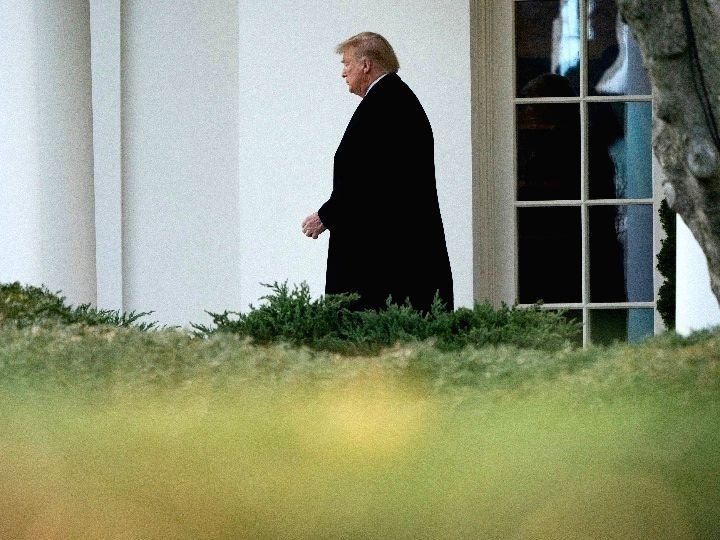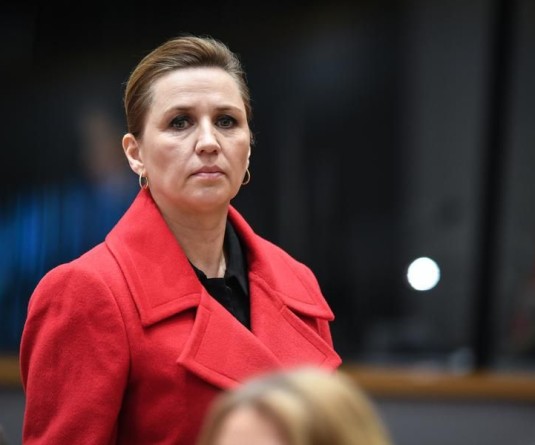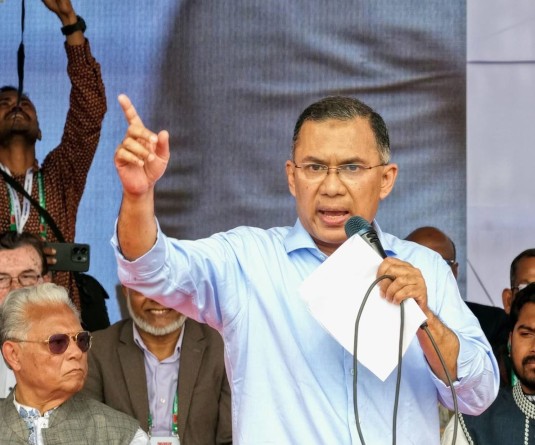President Donald Trump. (IANS File Photo)

Washington, January 14 (AP): His place in the history books rewritten, President Donald Trump endured his second impeachment largely alone and silent.
For more than four years, Trump has dominated the national discourse like no one before him. Yet when his legacy was set in stone on Wednesday, he was stunningly left on the sidelines.
Trump now stands with no equal, the only president to be charged twice with a high crime or misdemeanor, a new coda for a term defined by a deepening of the nation's divides, his failures during the worst pandemic in a century and his refusal to accept defeat at the ballot box.
Trump kept out of sight in a nearly empty White House as impeachment proceedings played out at the heavily fortified U.S. Capitol. There, the damage from last week's riots provided a visible reminder of the insurrection that the president was accused of inciting.
Abandoned by some in his own party, Trump could do nothing but watch history unfold on television. The suspension of his Twitter account deprived Trump of his most potent means to keep Republicans in line, giving a sense that Trump had been defanged and, for the first time, his hold on his adopted party was in question.
He was finally heard from hours after the vote, in a subdued video that condemned the insurrection at the Capitol and warned his supporters from engaging in any further violence. It was a message that was largely missing one week earlier, when rioters marching in Trump's name descended on the Capitol to try to prevent Congress from certifying Biden's victory.
I want to be very clear: I unequivocally condemn the violence that we saw last week," said Trump. He added that no true supporter of his could ever endorse political violence.
But that message, partially motivated to warn off legal exposure for sparking the riot, ran contrary to what Trump has said throughout his term, including when he urged his supporters to fight for him last week. Trump said not a word about his impeachment in the video, though he complained about the ban on his social media.
With only a week left in Trump's term, there were no bellicose messages from the White House fighting the proceedings on the other end of Pennsylvania Avenue and no organized legal response. Some congressional Republicans did defend the president during House debate in impeachment, their words carrying across the same space violated by rioters one week earlier during a siege of the citadel of democracy that left five dead.
In the end, 10 Republicans voted to impeach.
It was a marked change from Trump's first impeachment. That December 2019 vote in the House, which made Trump only the third president ever impeached, played out along partisan lines. The charges then were that he had used the powers of the office to pressure Ukraine to investigate a political foe, Joe Biden, now the president-elect.
At that time, the White House was criticized for failing to create the kind of robust war room that President Bill Clinton mobilized during his own impeachment fight. Nonetheless, Trump allies did mount their own pushback campaign. There were lawyers, White House messaging meetings, and a media blitz run by allies on conservative television, radio and websites.
Trump was acquitted in 2020 by the GOP-controlled Senate and his approval ratings were undamaged. But this time, as some members of his own party recoiled and accused him of committing impeachable offenses, Trump was isolated and quiet. A presidency centered on the bombastic declaration I alone can fix it seemed to be ending with a whimper.
The third-ranking Republican in the House, Rep. Liz Cheney of Wyoming, said there had never been a greater betrayal by a president. Senate Majority Leader Mitch McConnell, R-Ky., told colleagues in a letter that he had not decided how he would vote in an impeachment trial.
For the first time, Trump's future seemed in doubt, and what was once unthinkable that enough Republican senators would defy him and vote to remove him from office seemed at least possible, if unlikely.
But there was no effort from the White House to line up votes in the president's defense.
The team around Trump is hollowed out, with the White House counsel's office not drawing up a legal defense plan and the legislative affairs team largely abandoned. Trump leaned on Sen. Lindsey Graham, R-S.C., to push Republican senators to oppose removal. Graham's spokesman said the senator was making the calls of his own volition.






